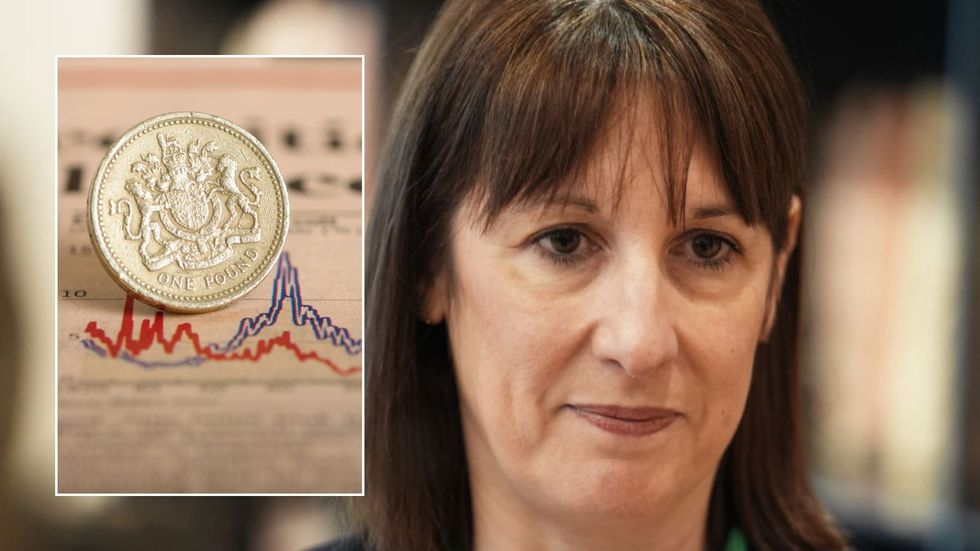The OBR has updates its latest growth forecast for the UK economy based on the Chancellor's Spring Statement
Don't Miss
Most Read
Trending on GB News
The UK economy's gross domestic product (GDP) is expected to grow by only one per cent in 2025, half of what was forecast last year, according to the latest estimates from the Office for Budget Responsibility (OBR).
These projections come alongside Chancellor Rachel Reeves's Spring Statement which outlined massive cuts to public spending and the welfare state.
Reeves faces a major setback ahead of today's fiscal statement with the Treasury watchdog rejecting her claimed savings from benefits reforms.
The OBR initially has dismissed the Government's estimate that reforms of work and disability handouts can save £5billion. Instead, the OBR has valued these savings at closer to £3billion, according to reports.

The OBR has given its verdict on the Chancellor's Budget
GETTY
This triggered a frantic last-minute scramble to find additional cuts, despite growing opposition from Labour MPs with an extra £500million reportedly being trimmed from welfare, with the remainder coming from other areas.
Furthermore, the OBR has forecast that inflation will average 3.2 per cent this year, before falling to 2.1 per cent in 2026 and then two per cent from 2027, according to the Chancellor.
In its analysis of Labour's policy agenda, the office noted the Government's planning reforms will increase GDP permanently by 0.2 per cent in 2029/30.
This represents an additional £6.8billion and pushing housebuilding to a “40-year high”, Rachel Reeves has told the Commons.

UK economy at risk as Trump’s tariff hikes to slow GDP growth and drive inflation, analyst have claimed
GETTYEd Cornforth, an economist for the National Institute for Economic and Social Research (NIESR), shared his concerns about the reforms announced during the Chancellor's fiscal statement.
He said: "There is considerable uncertainty around whether the Chancellor's measures will pay off, particularly as it rests on several behavioural assumptions.
The changes to welfare are unlikely to incentivise work as much as the government states. The chancellor’s strategy is optimistic and at risk of potential benefits not panning out."
Professor Joe Nellis, an economic adviser at accountancy firm MHA, outlined why defence and housebuilding are Rachel Reeves's keys to unlocking GDP growth.
He explained: "TChancellor’s statement and presentation of the Office for Budget Responsibility’s forecast today has proved what we already knew — there is no instantaneous cure to the economic malaise the UK finds itself in.
"The slashing in half of the OBR’s forecast for growth in 2025 to one per cent is certainly a setback for the Chancellor. Yet, this was a Spring Statement to calm the nerves, with no big surprises, and aiming to set the foundations for long-term sustainable growth.
LATEST DEVELOPMENTS:

Analysts are noting there is a "glimmer of hope" for the UK economy
GETTY"After increased borrowing costs wiped out the Treasury’s fiscal headroom in the time since the October Budget, the Chancellor was keen to reassure the financial markets by announcing that they would meet the investment and stability rules two years earlier than previously expected.
"She was also able to offer a glimmer of hope — the OBR predictions for growth next year and every year thereafter have been upgraded to 1.9 per cent in 2026, 1.8 per cent in 2027, 1.7 per cent in 2028, and 1.8 per cent in 2029.
"The conditions for growth will need to be created. The Government will be hoping that investment in housebuilding and defence can be the driving forces behind this."









